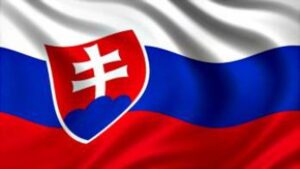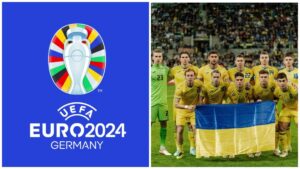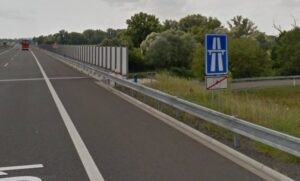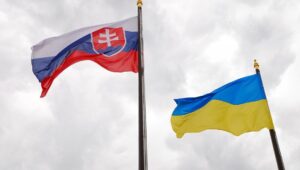
Some Ukrainian refugees will receive less support from Slovakia starting in March 2025, after lawmakers approved minor amendments to immigration legislation in late November – the Foreigners’ Residence Act and the Asylum Act, the Slovak Spectator reported.
“Starting March 1, 2025, people who received Ukrainian refugee status after February 28, 2025, will be allowed to stay in shelters for no more than 60 days, compared to the current 120 days. Similarly, the accommodation allowance will be limited to the first 60 days, not 120 days, as it has been since July this year,” the statement said.
The changes will not apply to vulnerable groups: pensioners over 65, children under five, or single guardians of these children.
The government claims that these measures will allow the Ministry of the Interior to save EUR2 million, a necessary step given the current pressure on public spending.
Slovakia’s Deputy Interior Minister Peter Krauspe defended the changes, noting that Ukrainian refugees usually find work and housing within two months of arriving in Slovakia. “We need to save money wherever possible,” he said.
Opposition MPs, however, said the cuts were excessive, noting that neighboring countries provide support for up to 90 days. They also criticized the lack of transparency and consultation in making these last-minute changes.

Some Ukrainian refugees will receive less support from Slovakia from March 2025, after lawmakers approved minor amendments to immigration legislation – the Law on Residence of Foreigners and the Law on Asylum – in late November, Slovak Spectator reported.
“As of March 1, 2025, those granted Ukrainian refugee status after February 28, 2025, will be allowed to stay in asylums for no more than 60 days, up from the current 120 days. Similarly, the residence allowance will be limited to the first 60 days, rather than 120 days, as it has been since July this year,” the statement said.
The changes will not affect vulnerable groups: pensioners over 65, children under five, or single carers of these children.
The government says the measures will save the Interior Ministry EUR2 million, a necessary step given the current pressure on public spending.
Slovakia’s Deputy Interior Minister Peter Krauspe defended the changes, noting that Ukrainian refugees usually secure jobs and housing within two months of arriving in Slovakia. “We need to save money wherever possible,” he said.
But opposition lawmakers said the cuts were excessive, pointing out that neighboring countries provide support for up to 90 days. They also criticized the lack of transparency and consultation in making these last-minute changes.

The Ukrainian national team won 2-1 against Slovakia in the second match of the 2024 European Football Championship.
The Ukrainian team conceded in the first half on 17 minutes from Ivan Shrantz, but in the second half – on 54 minutes Mykola Shaparenko equalized the score after a shot by Oleksandr Zinchenko.
Roman Yaremchuk scored the winning goal on the 80th with a pass from Shaparenko.
As reported, Ukraine lost the first match to Romania with the score 0:3.
In the group stage of Euro 2024 Ukraine will play on June 26 with the national team of Belgium.

Ukraine will play the second match at the UEFA European Football Championship 2024 against Slovakia on Friday.
The match will start at 16:00 Kiev time at the stadium in Düsseldorf.
It will be officiated by a refereeing team from England headed by Michael Oliver.
According to the Ukrainian Football Association (UFA), Ukraine will start with Anatoliy Trubin, Oleksandr Timchyk, Ilya Zabarny, Mykola Matvienko, Oleksandr Zinchenko, Volodymyr Brazhko, Mykola Shaparenko, Hryhoriy Sudakov, Andriy Yarmolenko, Mykhailo Mudryk and Artem Dovbik.
As reported, the first match Ukraine lost to Romania with the score 0:3.
Within the group stage of Euro-2024 Ukraine will also play on June 26 against Belgium.

Slovakia may begin construction of a highway leading from Kosice to the Uzhhorod-Vysne Nemecke checkpoint on the border with Ukraine, the press service of the Ukrainian Ministry of Finance reported on Friday.
The project of building a new highway was discussed at bilateral talks on improving cross-border communication in Slovakia with the participation of Deputy Finance Minister of Ukraine Oleksandr Kava as part of a government delegation headed by Prime Minister Denys Shmyhal.
“The meeting also discussed the project of building a highway from the Uzhhorod-Vysne Nemecke checkpoint to the suburbs of Kosice. This is part of Slovakia’s main highway, the D1, which connects the country’s two largest cities, Bratislava and Kosice, and is also part of the pan-European network of expressways,” the statement said.
The parties also discussed the issue of opening the Uzhhorod-Vysne Nemecke checkpoint not only for cars, but also for pedestrians and cyclists. The checkpoint will be accessible by public transport from both sides of the border without the need to use a car.
“This is especially important for residents and guests of the regional center of Zakarpattia Oblast, as it will provide them with more opportunities for movement,” the press service adds.
In addition, it is planned to expand the automobile part of the checkpoint from four to five lanes, which will increase its capacity.
Kava, quoted in the report, noted that the agreements reached are a step towards creating a smooth and dynamic cross-border connection.
“They will not only improve the daily lives of our citizens, but will also contribute to overall economic growth together with partner countries,” the deputy minister said.
Earlier, Deputy Minister of Communities, Territories and Infrastructure Development Serhiy Derkach said that a passenger terminal with several lines of traffic for passenger buses would be built at the Uzhhorod-Vysne Nemecke checkpoint on the border with Slovakia by the end of 2024.

Ukraine and Slovakia intend to hold a joint Ukrainian-Slovak business forum in the fall of 2024, Ukrainian Prime Minister Denys Shmyhal said.
“We have invited representatives of Slovak business and government to the Recovery Conference to be held in Berlin in June this year. Based on its results, we plan to organize a joint Ukrainian-Slovak business forum in the fall,” Shmyhal said at a joint briefing with Slovak Prime Minister Robert Fico on Thursday.
According to him, the forum will clearly discuss the prospects for investing in the economies of the countries.